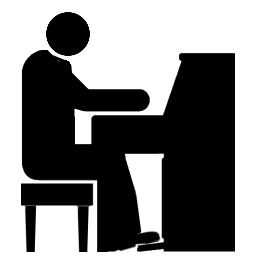The word Toccata comes from the Italian 'toccare' meaning "to touch." The toccata is written for keyboard to offer keyboardists the opportunity to showcase their musical skills. The form was originally written for organists. As the form increased in 16th century use and popularity among Italian composers, they wrote toccatas for piano too.
Italian composers then carried the toccata into other lands such as Austria, Germany, and the Netherlands where composers like Buxtehude, Pachelbel, and Sweelinck took the form into more advancements. Then composer J.S. Bach who, inspired by fellow German composer Buxtehude, composed for organ the most known and popular toccata to date, 'Toccata and Fugue in D minor' in early 1708.
The toccata's use gradually fell off through the next century but was later revived in the early 20th by French composers Claude Debussy and Joseph Ravel. Under their influence, Russian Sergei Prokofiev composed his masterpiece 'Toccata from 'Le tombeau de Couperin'' in 1912.
Baroque Toccata
'Toccata and Fugue in D Minor'
Composed by Johann Sebastian Bach 1708
Late Romantic Toccata
'Pour le Piano'
Composed by Achille-Claude Debussy 1901
1536
1543
1607
1615
1708
1784
1832
1901
1912
1917
'Toccata for Piano'


